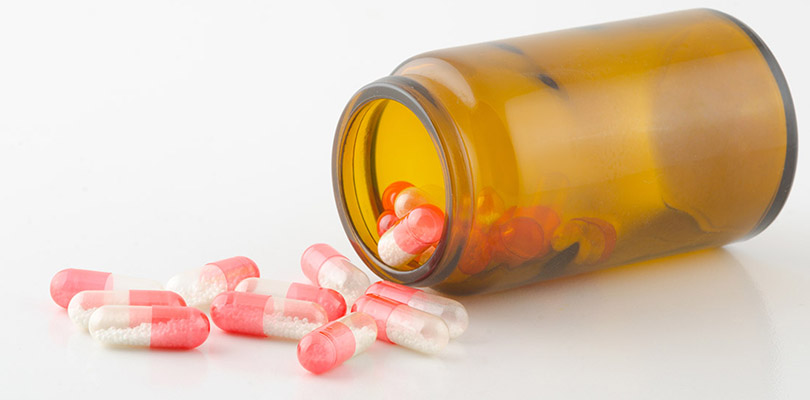Understanding What Biosimilar Drugs Are
North America is gradually coming around to a type of medication that has been available in Europe for over a decade. Biosimilar drugs have found their way into more discussions about medications and have started to be included in treatment practices in Canada and the United States.
As patents on reference biologic drugs expire, it creates room in the market for the emergence of biosimilar drugs. Biosimilar drugs are changing things up in the medical world and providing more options for patients.
What Are Biosimilar Drugs?
It’s easier to understand biosimilars if you know what biologic drugs are. Biologic drugs are often manufactured using biotechnology; this technology uses living organisms or their cells to manufacture drugs using yeast, microorganisms, or human or animal cells.
This type of drug product includes vaccines, blood components, proteins, tissues, and gene therapy. As biologic drugs are made using living cells, not chemicals, they are processed in a tightly controlled environment to account for cell sensitivity to factors such as light, heat, and bacteria.
Biologics treat conditions such as cancer, rheumatoid arthritis, kidney diseases, autoimmune diseases, anemia, Crohn’s disease, and psoriasis.
As the name suggests, biosimilar drugs are similar to their biologic counterpart, but not an exact equal. When patents for biologics lose exclusive rights, the ability to create biosimilar versions of the drugs becomes a reality; because of this, we’re going to see many more biologics become available over the next few years.
Biosimilars that demonstrate to be highly similar to a biologic that was already authorized for sale can enter the market, but only after a thorough comparison to the biologic. Biosimilars entering the market encourage production of alternative treatment options and help reduce the healthcare cost.
The Difference Between Biosimilars and Generics
Keep in mind; biosimilars shouldn’t be confused with generic drugs; biosimilars are like imitators while generic drugs are more like clones.
- Generic drugs have identical medicinal ingredients, which can be replicated with exact measurements like a recipe time and time again.
- Biosimilars, due to the variable nature of living organisms and the complexity of creating a biosimilar, can be comparable to the reference biologic drug, but it will never be the exact same.
A chronic runny nose can be an uncomfortable experience for anyone. Often, it may be a side effect of a cold or flu, or for a variety of other reasons.
To be clear, biosimilar drugs don’t have any clinically meaningful differences in the realms of safety, purity, and potency; we’re not comparing apples and oranges – more like comparing gala apples to macintosh apples.
Biosimilars aren’t necessarily interchangeable with their biologic equivalent. Some biosimilars are only prescribed to treat a selection of the conditions the biologic version.
Reasons for this include drug indication patent dates, the biosimilar manufacturer chooses which indications they would like for the product and may not opt for all indications of the biologic, or the biosimilar may not be authorized for specific signs based on benefit and risk analysis.
The Different Types of Biosimilars
If mandatory substitution is included in your health benefits plan, you won’t be seeing a biologic drug swapped out for a biosimilar drug in the immediate future.
As it stands right now, biosimilars can only be dispensed at the pharmacy if it has been specifically prescribed by name, and can only be claimed through insurance if the biosimilar is listed on the drug formulary list.
A few examples of biosimilars are:
- Zarxio (biosimilar to Neupogen) is used to help your body boost white blood cell production after cancer treatments.
- Inflectra (biosimilar to Remicade) is a tumor necrosis factor (TNF) blocker that is used to reduce inflammation. It is used to treat rheumatoid arthritis, Crohn’s disease, spine arthritis, ulcerative colitis, psoriatic arthritis, and plaque psoriasis.
- Erelzi (biosimilar to Enbrel) is a tumor necrosis factor (TNF) blocker as well. It is prescribed for rheumatoid arthritis, polyarticular juvenile idiopathic arthritis, psoriatic arthritis, ankylosing spondylitis and plaque psoriasis.
- Amjevita (biosimilars to Humira) is used to reduce effects of inflammation. It is used for such ailments as rheumatoid arthritis, Crohn’s disease, and plaque psoriasis.
- Mvasi (biosimilar to Avastin) is the first approved biosimilar in the United States for cancer indication. It is used to treat multiple types of cancer by interfering with blood vessels which help cancer grow.
As with all medications, there is the potential for side effects and improvement from medication is not a guarantee for everyone who has been issued a prescription. Your certified health care professional is equipped to answer further questions you may have on biosimilars and their biologic counterparts and how they may help you.
There are many trials in the works for several other biosimilar drugs looking to enter the market in the near future. Upon successful completion, there may be more options at the pharmacy to alleviate serious conditions and more competition in this market can also reduce the amount of money you pay for medication.







